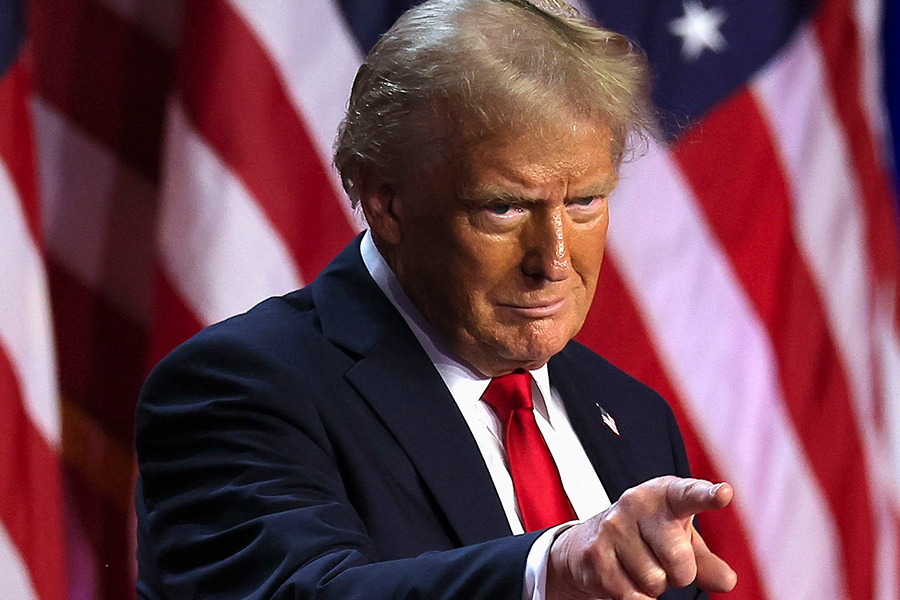Key Takeaways
- Crypto exchange Bybit experienced a major security breach when hackers gained control of an offline Ethereum wallet, leading to an estimated $1.5 billion loss and prompting significant outflows that saw Bitcoin dip by 2.1% and Ether by more than 7%.
- Coinbase CEO Brian Armstrong announced that the SEC is set to dismiss its lawsuit against Coinbase—with no fines or operational changes—providing a welcome boost to the crypto sector amid regulatory challenges.
- Rumors are circulating about a potential “Mar-a-Lago Accord,” suggesting that former President Trump may be considering a strategy to ease U.S. debt by restructuring foreign-held Treasuries, even as Treasury Secretary Scott Bessent advises against increasing longer-term Treasury sales due to current economic pressures.
- The reappearance of Jack Ma alongside Xi Jinping has reinvigorated market sentiment, as reflected by a surge in Alibaba shares and a renewed sense of confidence in the Chinese market.
- In a significant geopolitical development, the U.S. has hinted at potential sanctions relief for Russia amid Ukraine conflict talks, a move that could signal a shift in American foreign policy and impact international relations.

IPO’s in the week
- Anbio Biotechnology (Nasdaq: NNNN), a global leader in in vitro diagnostics, has successfully launched its initial public offering (IPO) at $5.00 per share, with 1.6 million shares listed on February 19, 2025. Committed to revolutionizing the diagnostics market through personalized and decentralized solutions, Anbio aims to enhance rapid diagnosis and improve patient outcomes.
- Wellgistics Health (Nasdaq: WGRX), a healthcare technology and pharmaceutical logistics company, has launched its initial public offering (IPO) at $4.50 per share, with 900,000 shares listed on February 21, 2025. Focused on patient-centric solutions, the company offers a mobile application that enhances prescription fulfillment, price transparency, and access to pharmaceutical products, empowering consumers to take control of their health.

Markets this week
- The S&P 500 dropped 108.47 points or 1.77% over the week.
- The Russell 1000 declined by 6.91 points, dropping 2.05% during the week.
- The Russell 2000 dropped 86.21 points, marking a 3.78% decline over the week.
- The CBOE gained 2.64 points, rising by 16.96% during the trading period.
- Bitcoin saw a slight decline of $53.46, dropping 0.06% during 5 days of trading.
- Ethereum dropped $3.57, marking a 0.13% decline during 5 days of trading.
- Gold gained $51.80, rising 1.80% over the trading period.
- Silver gained $0.07, increasing 0.20% during the week.
- WTI (West Texas Intermediate) dropped $0.45, declining 0.64% over the week.
- Brent Crude Oil dropped $0.81, declining 1.09% during the week.
- Treasury Secretary Scott Bessent said boosting longer-term Treasury sales is unlikely soon, citing inflation and the Fed’s tightening.
- Wall Street watches rumors of a ‘Mar-a-Lago Accord,’ a possible Trump plan to ease U.S. debt by restructuring foreign-held Treasuries.
- China-backed PT Gunbuster Nickel Industry in Indonesia faces shutdown due to payment delays and ore shortages after its parent company’s collapse.
- Jack Ma’s return alongside Xi Jinping signals a restored status, boosting Alibaba shares and market confidence.
- Coinbase CEO Brian Armstrong says the SEC will drop its lawsuit against the firm without fines or operational changes.
- Wall Street launches ETFs mimicking private equity as it awaits approval for full-fledged private-asset funds.
- Crypto exchange Bybit was hacked, with analysts estimating a record $1.5 billion loss. A hacker took control of an offline Ethereum wallet, triggering massive asset outflows.
- Bitcoin and Ether fell after Bybit’s $1.5 billion hack, with Bitcoin down 2.1% and Ether over 7%. Smaller altcoins saw steeper losses.
- Wall Street’s private credit boom is creating billionaires, with assets hitting $1.6 trillion. Direct lending has fueled $61 billion in new wealth, reshaping finance’s elite.
- Robinhood shares fell 21%, their worst week since 2021, as a 162% post-Trump rally faded amid growth concerns and a downgrade.
- Saudi Arabia’s PIF may boost U.S. investments in Trump’s second term, says Governor Yasir Al-Rumayyan, citing hopes for fewer restrictions.
- Banks pulled $3.3 billion in leveraged loans this month as investors push back on aggressive terms, despite strong demand for deals.
- Derivatives trading has surged from a niche tool to a market-driving force, fueled by retail traders, social media hype, and institutional adoption.
- Berkshire Hathaway has paid a record $101 billion in taxes under Warren Buffett, who urged the U.S. to ‘spend it wisely.
- Tokyo’s Asset Management One has bought Chinese bonds for the first time, betting China will follow Japan’s deflationary path, says fund manager Hikaru Tanaka.
- Cineworld plans to hire JPMorgan and Barclays to explore a U.S. IPO or merger, potentially excluding its UK business if sold separately.
- Blackstone Inc. is in advanced talks to acquire VaxCare Corp. for $1.7 billion, including debt.

Politics Weekly
- President Trump signaled openness to a new trade deal with China, stating, “It’s possible,” despite ongoing tensions.
- Trump’s focus on tariff revenue to fund tax cuts raises trade war risks, leaving little room for negotiation with targets like the EU.
- President Trump pardoned Silk Road founder Ross Ulbricht, creator of the Dark Web marketplace, citing Libertarian and crypto industry support.
- The U.S. signaled potential sanctions relief for Russia in Ukraine war talks as President Trump pushes for a deal.
- China risks becoming the top U.S. threat if Trump strikes a deal with Putin, shifting military focus toward countering Beijing.
- Trump is “very frustrated,” and Zelensky must negotiate a deal on U.S. access to Ukraine’s critical minerals, says adviser Mike Waltz.
- Donald Trump criticized France’s Emmanuel Macron and UK PM Keir Starmer, saying they “haven’t done anything” to end the Ukraine war ahead of their White House visits next week.
- Elon Musk waved a ‘bureaucracy chainsaw’ from Argentina’s President Javier Milei at CPAC, symbolizing government spending cuts.
- China’s rare military drill near Australia has prompted flight diversions, with three naval ships in the Tasman Sea sparking regional concerns.
- Top U.S. and Chinese officials clashed over tariffs and economic issues in their first call under Trump’s administration.
- The Senate passed a $340 billion defense and border budget, complicating Trump’s tax cuts and debt ceiling plans. The House votes on tax cuts next week.
- India and China made “notable” progress in restoring ties, discussing border peace, travel, and trade in a ministerial meeting.
- Belgium backs growing calls for sanctions on Rwanda over its alleged support for M23 rebels in Congo, as Rwanda rejects Belgian aid.
- China urged the U.S. to stop weaponizing trade, warning that tighter investment reviews under Trump’s “America First” policy will hurt Chinese business confidence.
- Australian Treasurer Jim Chalmers visits Washington to seek a tariff exemption, as Trump signals openness but advisers push back.

Technology Advancements this week
- FTC Chair Ferguson has invited public comments on tech platform practices amid concerns over content moderation. The move follows claims from conservatives that their ideas and affiliations have been unfairly censored.
- Alibaba Group CEO Eddie Wu announced that advancing artificial general intelligence (AGI) is now the company’s top priority. Speaking to investors after exceeding analyst expectations, Wu emphasized Alibaba’s commitment to developing models that push the boundaries of intelligence.
- Microsoft has unveiled a quantum computing chip designed to power next-generation data centers. The emerging technology holds potential for breakthroughs in chemistry and healthcare, amid a wave of recent advancements in the field.
- Uber and Lyft risk declining demand as rideshare fares climb, according to a report by Gridwise Inc. In 2024, the median ride price in the U.S. increased 7.2% year-over-year to $15.99. A survey of 1,000 consumers found that 72% would reduce or stop using rideshare services if prices rise further.
- Chinese tech companies, including Black Sesame and XtalPi, have capitalized on the DeepSeek rally to raise funds through the equities market. The share placements followed President Xi’s recent meeting with entrepreneurs.
Don’t miss out on next week’s market insights and updates!
👉Keep the conversation going! Subscribe to our weekly newsletter for more insights, delivered straight to your inbox.

